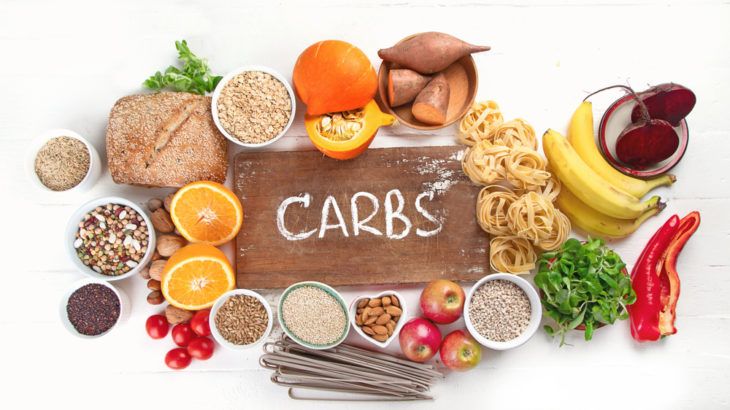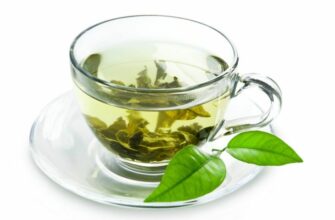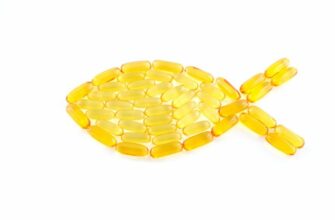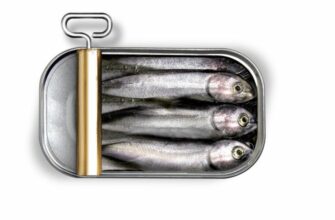The health community is one that is constantly changing as our scientific knowledge expands. Our idea of health and how to be healthy is always evolving. Can you believe at one time doctors actually recommended smoking cigarettes? While we generally have a good grasp on what’s healthy and what’s not, that doesn’t stop new diets and health trends from emerging each year, especially as experts continue to study the effects of different foods and lifestyle choices.
As a result of all these changes, it shouldn’t be surprising to learn there’s been a lot of controversy over the years. And with an overload of information out there, it can be overwhelming and sometimes hard to know who to listen to, especially when opinions contradict each other. While we can all agree on some things (e.g. smoking is bad for our health), there are many health topics that researchers and experts still can’t agree on. Let’s take a look at some of the biggest health controversies that still exist to this day…
Fasting
Fasting is resurfacing as a new and trendy diet, but it’s actually been around for thousands of years. Despite its long reign, fasting is still highly controversial and intensely debated. While it has proven to be successful with weight loss, most experts agree it isn’t a healthy, long-term solution. A better way to lose weight is to adopt healthy habits that will sustain weight loss over time. People also tend to have a strong urge to reward themselves after “hard work,” so there’s a tendency to eat more food when the fast is over. Harvard Health Publishing says the dropout rate for fasting averages around 38 percent.
According to WebMD, the biggest debate is around whether or not fasting can detoxify the body. The source says there’s no evidence that fasting will help detox the body, but Joel Fuhrman, MD, argues that because Americans eat so many processed foods, the body does need this department and fasting is the way to do so. He also states that fasting has been used for religious and spiritual purification for centuries.
Fasting has also been found to have a beneficial effect on diet psychology for some people. Some experts believe it can boost immune function and reduce inflammation associated with chronic disease. However, according to Dr. Frank Hu, chair of the department of nutrition at the Harvard T.H. Chan School of Public Health, there is no strong evidence that fasting adds any health benefits other than it being a successful weight-loss strategy.
Vaccinations
It seems every flu season the debate around vaccines resurfaces. Society has long struggled with a small group of people who still believe that vaccines are dangerous or that they actually cause health conditions rather than protect against them. The reality is that vaccinations have saved civilization from a number of illnesses like smallpox, polio, measles, and the flu.
The controversy around vaccinations seemed to have begun when a misguided doctor published a fraudulent study in The Lancet back in 1998 falsely claiming there was a link between autism and the MMR (measles, mumps, and rubella) vaccine. The study has since been retracted and the doctor, Andrew Wakefield has been publicly discredited and had his medical license revoked. Unfortunately, the damage has been done and there are still many anti-vaxxers out there today.
Gluten
It wasn’t that long ago that celebrities began talking about a new gluten-free diet which caused millions of people to give up gluten in the hopes of losing weight and becoming healthier. This trend hasn’t shown any signs of slowing down and the market for gluten-free products continues to grow. But is gluten really bad for us? The truth is, gluten is bad for a specific group of people, such as those with celiac disease or gluten sensitivity. For everyone else, gluten is safe to eat and according to the Mayo Clinic, a gluten-free diet doesn’t really provide any special health benefits.
With that being said, a gluten-free diet can be healthy. It just depends on smart food choices and moderation. There are many gluten-free foods that are highly processed and not necessarily healthy. If you’re replacing gluten-containing foods with full-fat dairy, starchy vegetables, red meat, sweets, and fats, then that is not a healthy diet. Whereas “good gluten-free choices include naturally gluten-free foods, such as lean meats, low-fat dairy, vegetables, fruit, whole gluten-free grains, and healthy fats,” writes the source. You can make healthy choices without eating a gluten-free diet, it just happens that most gluten-containing foods are highly processed.
While it’s still debated whether or not a gluten-free diet is healthier and many people still opt out, there’s no denying it’s a safer choice for those who need it. The key lies in avoiding highly processed foods.
Carbs
Similar to fat, carbs is another word that has gained a bad rep. We’ve all been told to avoid eating carbs because they will make us fat. Reinforcing this are many popular low-carb diets like Paleo and Atkins which teach people to choose meat over carbs. There’s also the keto diet which encourages people to eat more fat and fewer carbs and sugar. Overall, a healthy diet doesn’t include extremes of anything. The best option is to eat a healthy well-rounded diet. Although there’s no denying cutting out processed sugar is a good thing.
What a lot of people don’t realize is that carbohydrates are a broad category of foods and not all carbs are the same. Some can be healthy. For example, whole grains are a starchy carb with lots of fiber which is good for us. Overall there are three different types of carbs in food: sugar, starch, and fiber says NHS. The government recommends that half our daily calorie intake comes from starchy foods, fruit, and vegetables. The National Diet and Nutrition Survey advise people to eat more fiber and starchy foods, and less processed foods, such as sweets, pastries, and soft drinks. Fruit, vegetables, pulses, and starchy foods contain a wide range of nutrients, minerals, and vitamins.
Vitamin Supplements
There’s no denying that vitamin supplements play an important role in situations like developing countries where people who don’t get enough nutrients in their diet are suffering from dangerous and preventable conditions. In developed countries, it’s a different beast. “Supplemental use of vitamins to prevent disease constitutes a major commercial enterprise in the United States,” writes NCBI. “The efficacy of such use, or even the need for intakes above that which can be supplied by means of diet alone, has been the source of considerable controversy in the medical and scientific fields.” According to John Hopkins, the industry amounts to over $12 billion a year, as people regularly purchase multivitamins and vitamin or mineral supplements. The source goes on to say, this money is likely better spent on nutrient-packed foods like fruit, vegetables, whole grains, and low-fat dairy products.
However, there’s also no denying that deficiencies must be treated. A common one that may occur in developed countries is low vitamin D. This deficiency can increase the risk of some chronic conditions and isn’t uncommon in people who live in areas with harsh winters. Another exception is supplemental folic acid for women before and during early pregnancy.
Fat
Fat has always been a ‘scary’ word. Nobody wants to eat anything that is associated with fat. The reason for this is not only done people associated it with gaining weight but for a long time, we were told by heart experts to avoid it because it can be deadly — particularly the trans fats in margarine. Since the 1990s, a series of policy initiatives were put in a plan to eliminate artificial trans fat in U.S. foods by 2018. However, saturated fat seems to have come in its place in the form of trendy diets. In 2014, a well-publicized study raised the question of whether there was a link between saturated fat and heart disease, but nutrition experts at Harvard School of Public Health (HSPH) warned the paper is seriously misleading.
So what’s the truth about fat? According to HSPH cutting back on saturated fat can be good, as long as it’s replaced with good fats, particularly polyunsaturated fats. “Eating good fats in place of saturated fat lowers the “bad” LDL cholesterol, and it improves the ratio of total cholesterol to “good” HDL cholesterol, lowering the risk of heart disease,” writes the source. Eating lots of good fats can also prevent diabetes. Some examples of good unsaturated fats are avocados, walnuts, fish, flax seeds, almonds, sunflower, corn, soybean, and flaxseed oils.
Salt
Ever since the 1970s, we’ve been told to avoid salt because it could cause high blood pressure, increasing our risk of stroke and heart attack. However, some researchers are now suggesting high sodium intake doesn’t necessarily cause heart disease, at least not in people who have normal blood pressure. For example, in a recent study participants with a high intake of sodium and potassium actually had lower blood pressure, according to an analysis at the American Society for Nutrition’s Scientific Sessions meeting in Chicago. And those with low blood pressure actually averaged an intake of 3.7-grams of sodium a day which is much more than the National Academy of Medicine recommends which is no more than 2.3-grams per day (the national average is 3.4-grams a day).
Another 2016 study which was published in The Lancet looked at sodium intake and blood pressure in over 130,000 people (with varying degrees of sodium intake) from over 49 countries. “According to the data, moderate to high salt consumption in people with normal blood pressure did not appear to have the dire consequences that might have been presumed,” writes NPR. These studies are both being met with criticism by dietary experts who claim the methods of collecting this data are not nearly as accurate as other studies. Dr. Paul K. Whelton, a professor of public health at Tulane University and contributor to many major dietary guidelines points out to NPR that there are many studies (including his own back in the 90s) that found there is a link between lower blood pressure and lower sodium consumption.
However, according to Andrew Mente, a nutritional epidemiologist at McMaster University in Hamilton, a moderate intake of sodium may be better than a lower intake. While experts still disagree on how much sodium is good, it seems the best option is to get it from a healthy diet, not through processed, sugary foods that are low in nutrients.
Juicing
You’ll be able to find an opinion on both sides when it comes to juice cleanses. There are health experts who disagree with the benefits of a juice cleanse, and those who encourage them. The overall theme is to just be smart about it. Realistically, the best way to be healthy is to eat a balanced, healthy diet. There is no real scientific evidence to support the benefits of juicing.
These cleanse are meant to take place over a short period of time, anywhere from 3 to 10 days. One of the major benefits is that you’ll be consuming a large number of fruits and vegetables which are high in vitamins and nutrients. Medical News Today also notes that these juices can be rich in anti-inflammatory compounds which may boost the immune system and increase energy. Many avid juicers tote the benefits of cleansing the body, but in reality, the body doesn’t need any help removing toxins. That’s what the liver is for.
The potential risks of a juice cleanse are that they don’t offer a long-term weight loss plan. Drinking juice in large quantities can be harmful to people with kidney disorders. Also, these cleanse are low in calories leading to low blood sugar. This can cause an array of symptoms including fainting, weakness, dehydration, headaches, and hunger. Before trying a juice cleanse, consult with a doctor.
Sugar
Sugar is bittersweet because it does occur naturally in many foods such as fruits and vegetables, grains, and dairy. There is no danger in consuming natural sugar because plant foods also have lots of fiber, essential minerals, antioxidants, and dairy foods contain protein and calcium. The danger lies in added sugar which is a food that manufacturers add to products to increase their flavor and shelf life, says Harvard Health Publishing. Most people are consuming too much-added sugar which increases the risk of obesity and diabetes.
There was a study published in 2014 in JAMA Internal Medicine where Dr. Hu and his colleagues found a link between a high-sugar diet and an increased risk of dying from heart disease. There’s also a risk of increased blood pressure and chronic inflammation, both of which can lead to heart disease.
So what’s the recommended amount? There isn’t really one because sugar is not a required nutrient. The American Heart Association suggests men consume no more than 9 teaspoons of added sugar per day. The best way to avoid sugar is to eat as many natural foods as possible, and read food labels!
Red Meat
There are many different reasons people are cutting back on their red meat consumption, and when it comes to processed meat, it’s likely due to the fact that not too long ago the World Health Organization announced that processed meats appear to raise the risk of colon cancer.
In October 2019, a study was published in Annals of Internal Medicine which looked at the effects of red meat and processed meat on multiple health issues and found “low evidence” that either is harmful. Not surprisingly, this came with a lot of backlash from the scientific community.
This study once again called into question, whether is red meat unhealthy or not. According to Dr. Hu, there is a clear link between a high intake of red and processed meats and a higher risk of heart disease, cancer, diabetes, and premature death. Like many of the other foods on this list, the key is intake. People who have a low intake of red and processed meat have lower health risks. The recommendation is two to three servings per week.
Coffee
The past controversy around this popular beverage has not done much to deter people away from indulging in their daily cup of Joe. In the past, coffee has been blamed for stunted growth, high blood pressure, and even heart attacks. However, there is also a lot of conflicting research out there that shows coffee can have some positive health benefits. There were several analysis studies published in BMJ last year which found that people who drink three to four cups of coffee a day had lower mortality rates than those who didn’t drink any coffee. Even just drinking one cup of coffee a day was found to lower the risk of liver and heart disease. However, according to the Mayo Clinic, this may not hold true for young people who drink large amounts of coffee.
The Mayo Clinic goes on to say that older studies came to their negative conclusions because they weren’t taking into account other risk factors like smoking and lack of physical activity which also tended to be more common among coffee drinkers. Today, “studies have shown that coffee may have health benefits, including protecting against Parkinson’s disease, type 2 diabetes and liver disease, including liver cancer,” writes the source. It may also decrease the risk of depression and improve cognitive function.
What’s not in debate is whether or not pregnant women should be drinking caffeine. It still holds true today that coffee can be harmful to developing fetuses, so pregnant women should drink caffeine with caution. Talk to your doctor about whether it’s right for you. Generally, they recommend no more than 1-cup a day. Coffee is also still thought to contribute to osteoporosis and high consumption of unfiltered coffee has been linked to elevated cholesterol levels. You should also be wary of adding things like cream or sugar to your coffee because they can add hundreds of calories.

 Home
Home Health
Health Diet & Nutrition
Diet & Nutrition Living Well
Living Well More
More





















